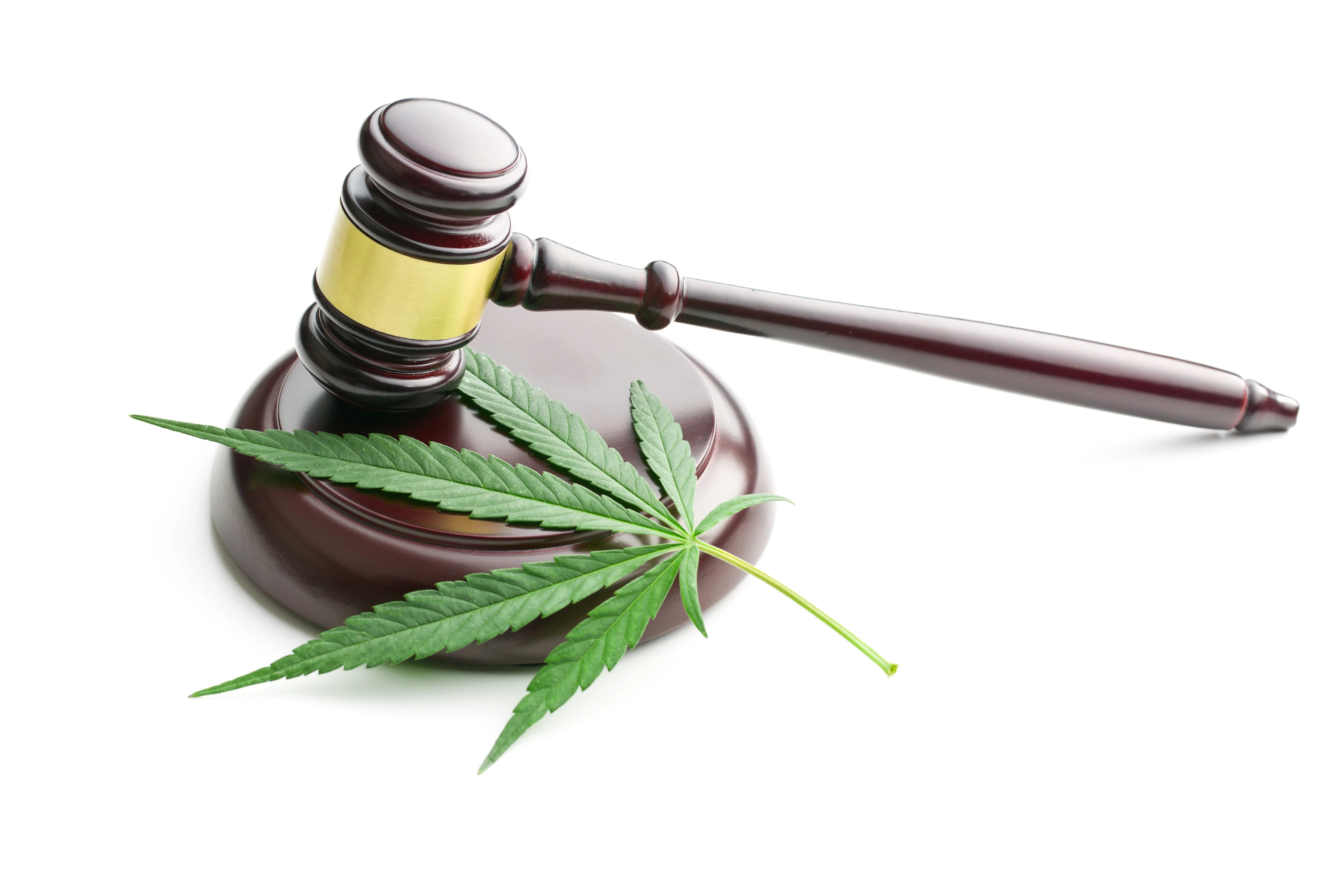
Colombia's Bold Call: Legalizing Marijuana to Curb the Illicit Drug Trade
In a striking moment of international diplomacy, Colombia’s President Gustavo Petro recently urged U.S. President Donald Trump to consider legalizing marijuana as a strategy to dismantle the illicit drug trade that has long plagued both nations. This provocative suggestion, made during a bilateral discussion in 2025, reflects Petro’s unorthodox approach to tackling one of the world’s most persistent and complex issues: the global narcotics market. With Colombia historically at the epicenter of the cocaine trade, Petro’s call for marijuana legalization in the U.S. is not just a policy proposal—it’s a calculated move to disrupt the economic underpinnings of cartels and reduce violence in his country. This 1000-word exploration delves into the context, rationale, and potential implications of Petro’s audacious plea, grounded in facts and figures.
A Historical Burden: Colombia’s Drug Trade Legacy
Colombia’s relationship with the illicit drug trade is a story of economic desperation, geopolitical pressures, and staggering human costs. For decades, the country has been synonymous with cocaine production, supplying an estimated 90% of the cocaine consumed in the United States, according to the U.S. Drug Enforcement Administration (DEA). In 2023, Colombia’s coca cultivation reached a record 230,000 hectares, producing roughly 1,700 metric tons of cocaine, per the United Nations Office on Drugs and Crime (UNODC). This thriving industry fuels cartels like the Clan del Golfo, which generate billions annually, perpetuating violence that claimed over 6,000 lives in Colombia in 2024 alone, based on government reports.
The financial allure of the drug trade is undeniable. A single kilogram of cocaine can fetch $30,000 in the U.S., compared to just $1,500 in Colombia’s rural regions. This massive profit margin incentivizes farmers to grow coca over legal crops like coffee, which yields a fraction of the income—$1 per kilogram versus $5 for coca leaves. Petro, a former guerrilla fighter turned progressive leader, understands that traditional eradication efforts, like aerial fumigation, have failed to address this economic reality. His proposal to Trump hinges on a radical idea: legalizing marijuana could destabilize the cartels’ diversified portfolios, as many also profit from cannabis trafficking.
Petro’s Proposal: A Game-Changer for the Drug War
Petro’s suggestion to legalize marijuana in the U.S. is rooted in a pragmatic observation: cannabis is a significant revenue stream for Colombian cartels, albeit secondary to cocaine. The UNODC estimates that illegal marijuana exports from Colombia to the U.S. generate $1 billion annually, a figure dwarfed by cocaine but still substantial. By legalizing and regulating marijuana, the U.S. could flood the market with legal, domestically grown cannabis, slashing prices and eroding cartels’ profits. In states like Colorado and Washington, where recreational marijuana has been legal since 2014 and 2012 respectively, black-market cannabis prices have plummeted by nearly 70%, according to a 2023 Cato Institute study. Petro argues this model could be scaled nationally to choke off illicit supply chains.
Moreover, Petro sees legalization as a way to shift U.S. policy away from the militarized “War on Drugs,” which has cost American taxpayers over $1 trillion since the 1970s, per the American Civil Liberties Union (ACLU). Colombia has borne the brunt of this approach, with U.S.-funded operations like Plan Colombia pouring $10 billion into eradication and interdiction since 2000, yet coca production has only risen. Petro’s plea is a call to redirect resources toward demand-side solutions, arguing that legalizing marijuana could reduce U.S. consumption of harder drugs like cocaine, as some studies suggest cannabis serves as a less harmful substitute for 15% of users.
The Economic Ripple Effect
Legalizing marijuana in the U.S. could have profound economic implications for Colombia. By undercutting the cannabis market, cartels might lose a critical revenue stream, forcing them to rely more heavily on cocaine and heroin. This could create an opportunity for Colombia to bolster alternative livelihoods for its farmers. Petro’s administration has already invested $500 million in crop substitution programs since 2022, offering subsidies for coffee, cacao, and avocados. However, only 20% of participating farmers have transitioned successfully, per a 2024 government report, largely because legal crops can’t match coca’s profitability. A weakened cannabis market could give these programs a fighting chance, as cartels’ reduced cash flow might limit their ability to coerce farmers.
Furthermore, legalization could reshape Colombia’s rural economy. The country’s legal cannabis industry, though nascent, is growing, with medical marijuana exports reaching $50 million in 2024. A U.S. market open to legal imports could create a legitimate alternative for Colombian growers, potentially employing 10,000 workers by 2030, according to industry projections. Petro envisions a future where Colombia supplies high-quality, regulated cannabis to the U.S., turning a source of violence into a driver of economic development.
The Social and Security Stakes
Beyond economics, Petro’s proposal addresses the human toll of the drug trade. In Colombia, narco-violence has displaced 8 million people since the 1980s, more than any other country except Syria, per the Internal Displacement Monitoring Centre. Legalizing marijuana could reduce the cartels’ territorial control, as they rely on cannabis smuggling routes to move other drugs. A 2023 study by the University of California found that legal cannabis markets in U.S. border states reduced cartel-related violence in Mexico by 13%. Colombia could see similar benefits, with Petro estimating a potential 25% drop in homicide rates in regions like Cauca and Nariño, where cannabis cultivation is rampant.
For the U.S., legalization could also address domestic challenges. The opioid crisis, which killed 80,000 Americans in 2024, is exacerbated by illegal drugs smuggled across borders. By legalizing marijuana, the U.S. could redirect law enforcement resources to combat fentanyl and heroin, which are increasingly laced with deadly synthetics. The DEA notes that 60% of seized fentanyl in 2024 originated from Colombian cartels, highlighting the interconnectedness of the two nations’ drug problems.
Challenges and Controversies
Petro’s proposal is not without risks. Critics argue that legalizing marijuana could normalize drug use, potentially increasing youth access. In the U.S., teen marijuana use rose by 10% in legal states between 2015 and 2023, per the National Institute on Drug Abuse. Colombia faces similar concerns, as domestic cannabis use has doubled since medical legalization in 2016. Petro counters that regulation, not prohibition, allows for better control over distribution and education.
Politically, Petro’s suggestion faces hurdles in the U.S. Trump’s administration has historically opposed federal legalization, with 60% of Republican voters favoring prohibition, according to a 2024 Gallup poll. However, public opinion is shifting: 70% of Americans now support legalization, per Pew Research. Petro’s call may find traction among moderates and Democrats, but navigating U.S. politics remains a challenge.
A Vision for a New Drug Policy Paradigm
Petro’s bold appeal to Trump is more than a policy pitch—it’s a vision for reimagining the global fight against drugs. By legalizing marijuana, the U.S. could disrupt the economic foundations of cartels, reduce violence in Colombia, and redirect resources toward prevention and rehabilitation. For Colombia, it’s a chance to break free from its narco-legacy, fostering a legal economy that empowers farmers and communities. While the road to implementation is fraught with obstacles, Petro’s proposal underscores a truth long ignored: the drug war cannot be won with guns and glyphosate alone. It demands innovation, courage, and a willingness to challenge decades of failed policy. As Colombia and the U.S. stand at this crossroads, the world watches to see if Petro’s vision can spark a new era of cooperation and progress.
Discover D Squared WorldWide’s premium cannabis products, crafted to disrupt the illicit drug trade while empowering Colombia’s farmers. Inspired by President Petro’s bold vision to legalize marijuana and weaken cartels, our ethically sourced, high-quality cannabis supports sustainable agriculture and vibrant communities. With the U.S. market evolving, our wholesale offerings deliver unmatched value, purity, and compliance. Join a movement to transform the industry—partner with D Squared WorldWide to access top-tier products that redefine profitability and purpose. Schedule a call today to explore our catalog and secure your supply chain for a brighter, legal future!
Reference:
1. Aaronson, E. and Campbell, J. (2020). Introduction to the symposium on drug decriminalization, legalization, and international law. Ajil Unbound, 114, 275-278. https://doi.org/10.1017/aju.2020.54
2. Anderson, D., Rees, D., & Sabia, J. (2014). Medical marijuana laws and suicides by gender and age. American Journal of Public Health, 104(12), 2369-2376. https://doi.org/10.2105/ajph.2013.301612
Barrett, L., Kearnes, M., McLauchlan, L., Lancaster, K., Mellor, R., & Ali, R. (2025). Regulating the plant versus regulating the drug: learning from backyard cannabis cultivation in the australian capital territory. Contemporary Drug Problems, 52(4), 524-542. https://doi.org/10.1177/00914509251334927



